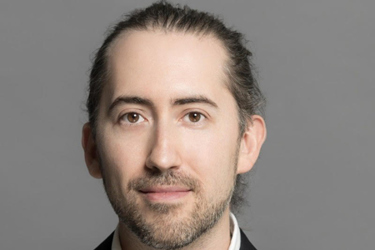A Proactive Approach To ‘Unscrupulous' Patent Practices

By Ben Comer, Chief Editor, Life Science Leader

Terran Biosciences founder and CEO Sam Clark, MD, Ph.D., believes his organization has engineered a way to sidestep a long-running patent ploy used by branded drugmakers to delay generic competitors from entering the market. By inventing and patenting new salts, polymorphs (or crystalline structures), and prodrugs, known around the industry as “secondary patents,” Terran plans to skirt potential patent infringement claims from branded drugmakers, as well as FDA generic drug approval stays.
In effect, Terran’s patent holdings for several classic psychedelic drug salts and polymorphs, such as psilocybin, LSD, and MDMA, are the same kinds of patents often used to impede generic entry in other therapeutic areas. Clark says Terran aims to use that existing delay strategy in reverse: to speed up the approval and launch of follow-on psychedelic drug competitors, once the branded drugs reach the market.
In February, Lykos Therapeutics announced that the FDA had accepted its NDA for MDMA-assisted therapy to treat post-traumatic stress disorder (PTSD), and set a PDUFA date of August 11, 2024. Many more psychedelic drugs — classic compounds and new discoveries alike — are moving through clinical trials and targeting a growing number of psychiatric and neurological indications.
MDMA, also known as the recreational drug ecstasy or molly, is not a patent-protected substance, but Lykos Therapeutics’ CEO Amy Emerson told Life Science Leader in 2022 that it expects “a minimum of six years of data exclusivity in the U.S.” That’s based on provisions in the 1984 Hatch-Waxman Act, which established a five-year data exclusivity period for new chemical entities approved by the FDA, starting from the date of approval. MDMA was first characterized by Merck scientists in 1912, and the patent, filed in 1914, has long since expired. However, the FDA has never approved MDMA for medical use, which would make Lykos the first to (potentially) receive approval, and to receive five years of market exclusivity.
Terran Biosciences, a company Clark founded in 2017, isn’t taking chances with secondary patent games. In a recent interview, Clark described what he calls “unscrupulous” patent practices related to salts and polymorph patents, such as when companies file patent infringement claims “even though they might not believe any infringement is actually happening,” but want to trigger a 30-month FDA regulatory stay on generic approval. “Terran has prepared in advance to get around those 30-month stays,” says Clark.
Lykos (formerly called MAPS PBC) is expected to become the first drug company to gain FDA approval for MDMA (in hydrochloride salt form). Clark emphatically states that he is not suggesting Lykos will attempt to use secondary patents to delay MDMA generic entry after five years on the market. “But unfortunately, that delay strategy has become widely used in the industry,” he says. “If a company chooses to go down that unscrupulous path, Terran is prepared to step in to bring affordable medications to patients.”
To that end, Clark says Terran has worked to develop new psychedelic salts and polymorphs: hemifumarate for MDMA, and hydrochloride for psilocybin, as examples. Those alternative salts and polymorphs will need to demonstrate bioequivalence with originator products potentially entering the market soon — an easy lift, because bioequivalence studies can be small, using healthy volunteers, says Clark — to show that the generic version delivers the same levels and effects in the bloodstream. From there, Terran can use the FDA’s 505(b)(2) pathway for approval, using originator product data and avoiding costly and time-consuming Phase 3 clinical trials.
Is Terran actually in the process of planting seeds that will grow into a psychedelic patent thicket of its own one day, eventually slowing down future psychedelic therapy developers? Clark says Terran views secondary patent infringement claims, combined with the FDA’s 30-month regulatory stays “very negatively,” calling that process “one of the worst loopholes that companies use to deny affordable treatments to patients.” For now, Terran is focused on its GMP manufacturing facility in Europe, which is set up to bulk manufacture a range of psychedelics, says Clark. “It’s all systems go for 505(b)(2) on psilocybin, MDMA, LSD, and any other psychedelics that may receive FDA approval, including DMT and 5-MeO-DMT.”
